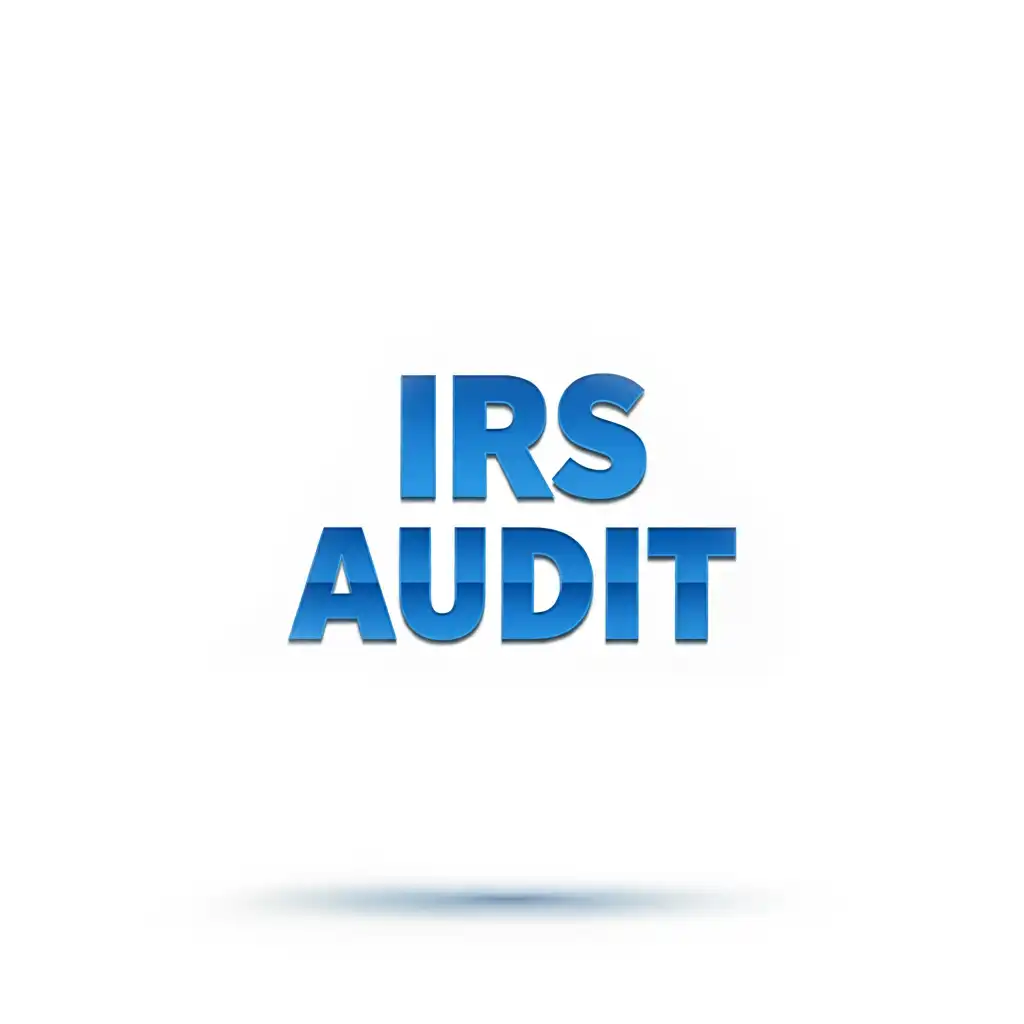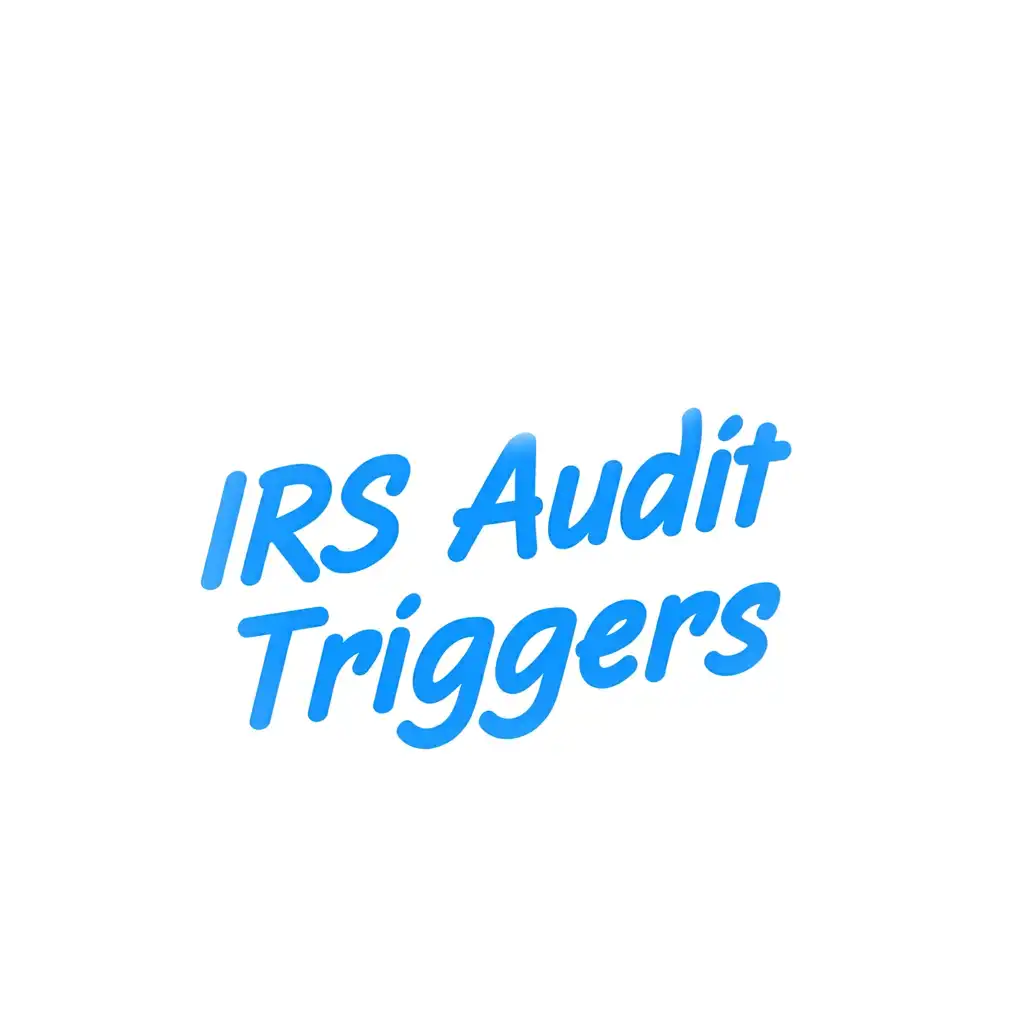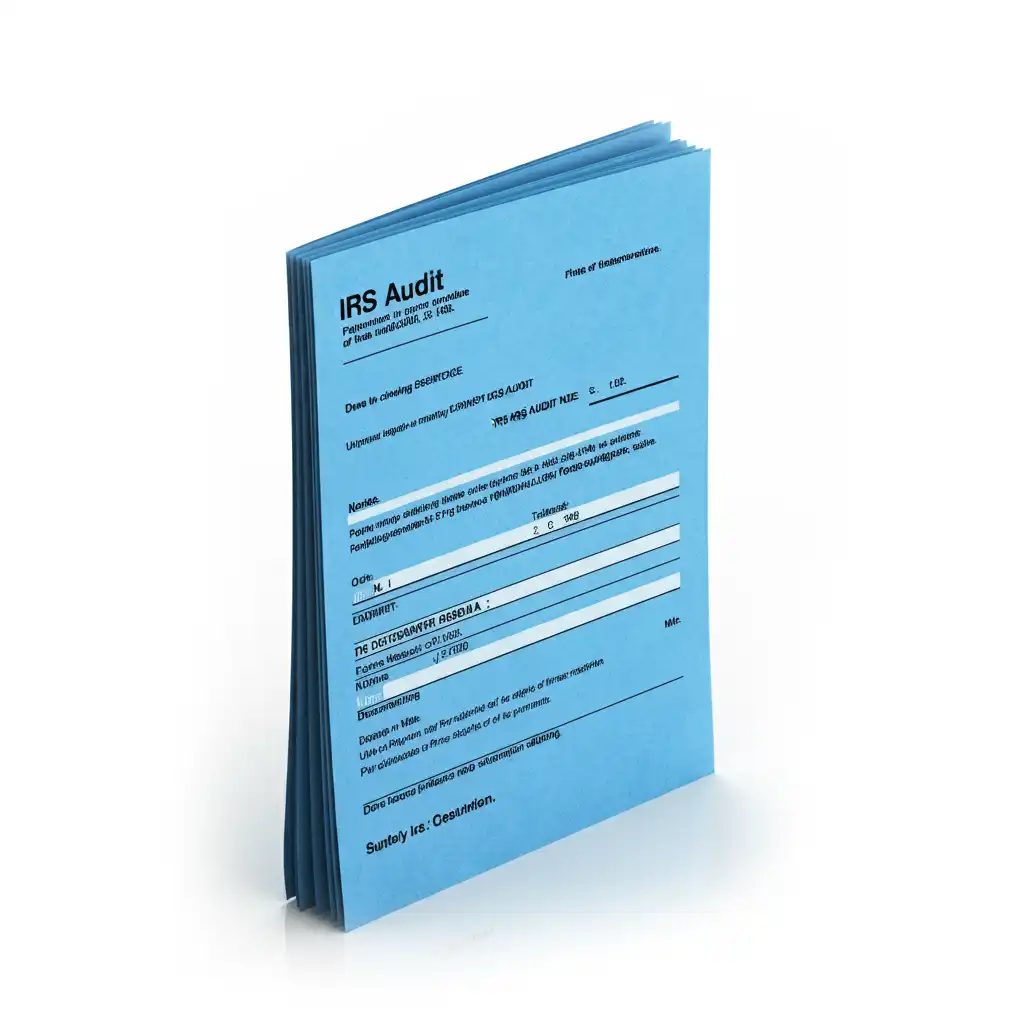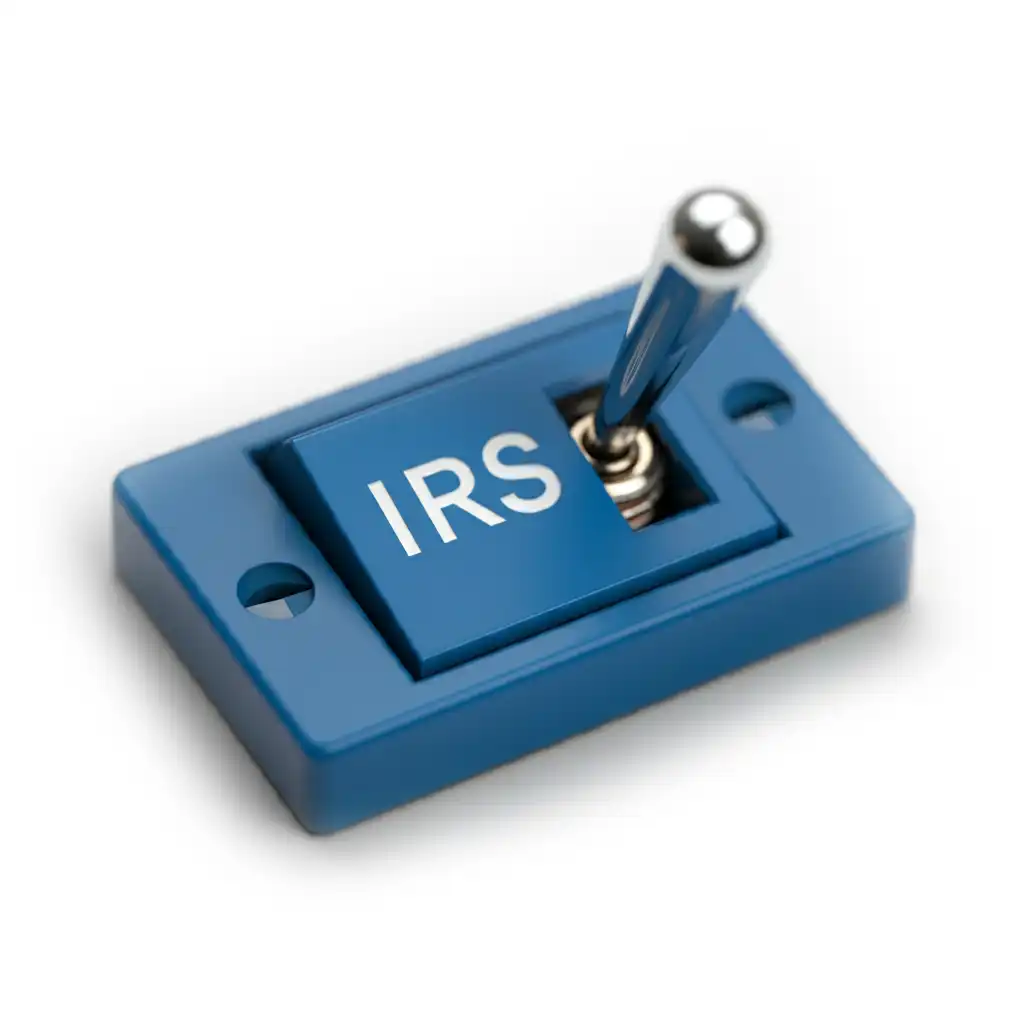Small Business IRS Audit Triggers

What is an IRS Audit?
An IRS audit is a formal review conducted by the Internal Revenue Service (IRS) to ensure that the information you reported on your tax return is accurate and in compliance with tax laws. In simple terms, it’s the IRS double-checking your tax returns to confirm that you’ve correctly reported your income, deductions, and credits, and that you’ve paid the appropriate amount of tax.
While receiving an audit notice can seem intimidating, it doesn’t automatically mean you’ve done something wrong. The IRS simply wants to verify that the numbers you provided match their records, and that you’ve followed tax regulations properly.
How IRS Audits are Conducted
There are two main types of IRS audits:
Mail Audits (Correspondence Audits):
- What it is: A mail audit is the most common and least invasive type of IRS audit. It’s conducted entirely through correspondence, meaning you won’t need to meet with an IRS agent in person.
- How it works: The IRS will send you a letter requesting additional documentation or clarification on certain aspects of your tax return. This could include things like proof of deductions, income verification, or other supporting documents.
- How to respond: You will be asked to mail or fax the requested documents within a specified time frame. If the IRS is satisfied with your response, the audit can be closed quickly.
In-Person Audits (Field or Office Audits):
- Office Audit: This is where the IRS asks you to come to one of their offices to review specific items on your return. You will meet with an IRS auditor to provide documentation and answer questions.
- Field Audit: This type of audit is conducted at your home, place of business, or your accountant’s office. Field audits are usually more comprehensive, as they typically involve a detailed review of complex tax returns.
- How to prepare: You’ll need to bring all relevant records, such as receipts, bank statements, and ledgers, to substantiate the claims you made on your return.
Random Audits vs. Triggered Audits
The IRS selects tax returns for audits in one of two ways:
Random Selection and Statistical Analysis:
Some audits are chosen entirely at random, based on a statistical formula. The IRS uses data models to compare your return to “norms” for similar taxpayers. If your return significantly deviates from these norms, it could be flagged for further review. While this type of audit is rare, it is meant to ensure that tax compliance is being maintained across a broad spectrum of taxpayers.Triggered Audits (Red Flags):
Most IRS audits are triggered by specific factors or “red flags” that raise suspicion. These triggers can include things like large charitable donations, excessive deductions, unreported income, or business losses. Essentially, if something on your return appears unusual or inconsistent with what other taxpayers in your income bracket report, it increases the likelihood that the IRS will investigate further.
Whether selected randomly or triggered by specific factors, the key to handling an IRS audit is preparation. Having well-organized records and responding promptly to the IRS’s requests can help resolve the audit quickly and minimize stress.
IRS Audit Statistics
| Statistic | Value |
|---|---|
| Total Revenue Collected by IRS (FY 2023) | $4.7 trillion |
| Tax Returns and Forms Processed (FY 2023) | 271.4 million |
| Individual Income Tax Returns Processed (FY 2023) | 163.1 million |
| Phone Calls Answered by IRS Employees (FY 2023) | 27.3 million (25% increase from FY 2022) |
| Taxpayer Assistance Center Contacts (FY 2023) | 1.6 million (18% increase from FY 2022) |
| Refunds Issued to Taxpayers (FY 2023) | $659 million (2.7% increase over FY 2022) |
| Tax Return Audits Closed (FY 2023) | 582,944 (Resulting in $31.9 billion in recommended additional tax) |
| Individual Returns Examined (Tax Years 2013-2021) | 0.44% |
| Corporation Returns Examined (Tax Years 2013-2021) | 0.74% |
| High-Income Returns Examined (Tax Years 2013-2021) | 8.7% |
| IRS Website Visits (FY 2023) | 880.9 million |
| "Where's My Refund?" Tool Inquiries (FY 2023) | 303.1 million |
Data Retrieved From: https://www.irs.gov/
‘Pro-Tip’
Double-Check for Accuracy: Even small errors like a typo in your Social Security number or miscalculating a deduction can trigger an audit. Before submitting your return, review it thoroughly or use tax software that automatically checks for mistakes.

12 Common IRS Audit Triggers
While the chances of being audited are relatively low, certain red flags can increase the likelihood of your tax return being selected for further scrutiny. These audit triggers are often tied to discrepancies, unusual claims, or reporting errors. By being aware of these triggers and following best practices, you can reduce the risk of an IRS audit. Let’s dive into the most common IRS audit triggers and how to avoid them.
1. Math Errors and Typos
One of the most basic but common reasons for an IRS audit is simple math mistakes or typos. If your tax return doesn’t add up—whether due to miscalculations or incorrect information—this can flag your return for review. Even minor errors, such as transposing digits in your social security number or incorrectly adding up deductions, can raise suspicion. The IRS uses automated systems to detect such discrepancies, and these can easily prompt an audit.
- Tip: Always double-check your math before submitting your tax return. Consider using tax preparation software or hiring a professional accountant to ensure that everything is calculated correctly. Additionally, verify all personal information, like your social security number, to avoid preventable errors.
2. High Income
The higher your income, the more likely you are to face scrutiny from the IRS. This is especially true for individuals making over $500,000 annually, as the IRS tends to audit these returns more frequently than those in lower income brackets. The reasoning is simple: with more income comes more complexity in tax returns, and potentially more opportunities for errors or questionable deductions.
- Tip: Ensure that your income is accurately reported, and that any deductions or claims are legitimate and supported by thorough documentation. For higher earners, it’s advisable to work with a qualified tax professional to avoid mistakes that could raise red flags.
3. Unreported Income
Failing to report all of your income is a major audit trigger. The IRS receives copies of your W-2s, 1099s, and other income-related documents, and their systems automatically cross-check the information you report. If there’s a discrepancy, such as missing a 1099 from freelance work or investment income, your return may be flagged for further review. This often happens if you forget about side income, such as freelance work, stock dividends, or rental income.
- Tip: Make sure you report all forms of income, even if it’s from a side gig or a one-time payment. Cross-check your tax forms against IRS records to ensure all income sources, including 1099s and W-2s, are reported correctly.
4. Excessive Deductions
Claiming significantly larger deductions than others in your income bracket can be another red flag. The IRS compares deductions across similar returns, and if your deductions seem abnormally high, your return may be subject to closer inspection. For instance, if you claim unusually large charitable donations or business expenses that seem disproportionate to your income, it may trigger an audit.
- Tip: While you should claim every deduction you are entitled to, it’s essential to keep thorough documentation to back up each claim. Whether it’s receipts, invoices, or donation letters, have the proper records to prove that your deductions are legitimate and reasonable for your income level.
5. Schedule C Filers (Self-Employed Individuals)
Self-employed taxpayers, particularly those who file a Schedule C (Profit or Loss from Business), face increased scrutiny from the IRS. This is because self-employment offers more opportunities for underreporting income or overstating business expenses. The IRS is especially cautious when businesses report continuous losses, as they might suspect an attempt to reduce taxable income improperly. Reporting losses for several consecutive years can raise questions about whether the business is genuinely viable or if it’s being used to offset other income.
- Tip: Keep detailed and organized records of all business income and expenses. Proper documentation, such as receipts, invoices, and bank statements, will support the claims on your return and help you avoid an audit.
6. 100% Business Use of a Vehicle
Claiming that a vehicle is used 100% for business purposes is rare and will often raise red flags with the IRS. The IRS knows it’s uncommon for individuals not to use a vehicle for personal activities, and without another personal vehicle in the household, such a claim is even more suspicious. The more business use you claim, the higher the chances the IRS will scrutinize the deduction, especially without proper records.
- Tip: If you claim business use of a vehicle, maintain thorough mileage logs that clearly differentiate between personal and business use. Record the date, purpose, and miles driven for each trip to substantiate your deduction.
7. Claiming a Loss on a Hobby
Many people have side activities or hobbies that generate some income, but the IRS distinguishes between hobbies and legitimate businesses. To be considered a business for tax purposes, you must demonstrate a profit motive. Generally, the IRS expects a business to make a profit in at least three out of five years. If you continually report losses, the IRS may consider your activity a hobby, which means you can’t deduct expenses beyond the income generated by the activity.
- Tip: To classify your activity as a business and qualify for deductions, ensure you’re running it in a professional manner—keeping records, marketing, and showing intent to generate a profit. Aim to demonstrate profitability in at least three out of every five years.
8. Home Office Deduction
The home office deduction is one of the most commonly abused deductions, which is why the IRS has strict rules surrounding it. To claim this deduction, the area you designate as your home office must be used regularly and exclusively for business purposes. Occasional work from your dining room table or multi-purpose room doesn’t count. This deduction is closely scrutinized because people often try to deduct portions of their homes that don’t meet the IRS’s stringent requirements.
- Tip: Only claim a home office if the space is used solely for business activities. Keep clear records and be prepared to provide evidence that the space is not used for personal activities.
9. Business Meals, Travel, and Entertainment Deductions
These deductions are ripe for abuse, which is why the IRS monitors them closely. To deduct business-related meals, travel, or entertainment expenses, they must be ordinary and necessary for your business. You also need to provide detailed documentation—this includes not just receipts but also information about who you were with and the business purpose of the meeting.
- Tip: Keep meticulous records for all business-related meals, travel, and entertainment expenses. Include receipts, who attended, and the specific business purpose of the expense. Without this documentation, the IRS may disallow the deduction.
10. Earned Income Tax Credit (EITC) Claims
The Earned Income Tax Credit (EITC) is a valuable credit for low- to moderate-income taxpayers, but it is frequently misclaimed, either due to misunderstandings or intentional fraud. The IRS estimates that a significant percentage of EITC claims are paid in error, so they scrutinize these claims closely. If you incorrectly claim the EITC, the IRS can disallow the credit and impose penalties.
- Tip: Before claiming the EITC, carefully review the eligibility criteria to ensure that you qualify. Keep documentation proving that you meet the requirements, such as income records and documentation of dependents.
11. Cryptocurrency Transactions
As cryptocurrencies like Bitcoin and Ethereum become more popular, the IRS has increased its focus on these transactions. Cryptocurrency is treated as property for tax purposes, meaning that any transaction—whether buying, selling, or trading—can result in a taxable event. Given the lack of formal reporting requirements in some cases, the IRS suspects many people underreport cryptocurrency gains, making this a growing area of scrutiny.
- Tip: Accurately report all cryptocurrency transactions on your tax return, including gains and losses. Keep a record of every trade or sale, and use tax software that integrates with cryptocurrency platforms to ensure compliance.
12. Early Withdrawals from Retirement Accounts
Taking early withdrawals from a retirement account, such as a 401(k) or IRA, often leads to additional taxes and penalties unless specific conditions are met. If you withdraw funds before reaching the eligible age, the IRS expects you to report the transaction and pay any necessary taxes. Failure to report these withdrawals correctly can trigger an audit.
- Tip: Only take early withdrawals when absolutely necessary, and make sure you understand the tax implications. Accurately report any withdrawals on your tax return, and ensure that you meet the criteria for any exceptions to the penalty.
IRS Compliance Activities
Data Retrieved From: https://www.irs.gov/
‘Pro-Tip’
Report All Income, Even Side Gigs: If you’ve done any freelance work, earned investment income, or sold items online, make sure you report it. The IRS receives copies of your 1099s and W-2s, and discrepancies could lead to an audit.

How Far Back Can the IRS Audit?
The IRS has a statute of limitations that defines how far back they can go when auditing tax returns. Under normal circumstances, the IRS can audit tax returns that were filed within the last three years. This means that your current tax return, along with those from the previous two years, are subject to scrutiny during this standard time frame. However, there are certain situations where the IRS can extend this audit period beyond the typical three years.
The Standard Three-Year Period
In most cases, the IRS limits its audit scope to the last three years of tax returns. This three-year rule begins from the due date of the return or the actual filing date—whichever is later. For example, if you filed your 2022 tax return on April 15, 2023, the IRS generally has until April 15, 2026, to audit that return. If you filed late, the three-year window begins from the filing date.
The IRS uses this standard audit window to review your returns for errors or discrepancies. If no major issues are found, they cannot audit that return once the statute of limitations expires.
The Six-Year Extension for Substantial Errors
In some situations, the IRS can extend the audit period to six years. This happens if they discover a substantial error in your return, particularly if you’ve underreported income by more than 25%. For instance, if you neglected to report significant income from investments, freelance work, or business dealings, the IRS may expand its review to six years’ worth of returns to ensure accuracy across the board.
Another scenario that can lead to a six-year audit window involves foreign income. If you failed to report more than $5,000 in foreign income or assets, the IRS may also extend the statute of limitations to six years.
No Statute of Limitations for Fraud or Non-Filing
In cases of fraud or failure to file a tax return, the IRS has no time limit for conducting an audit. If they believe that you willfully committed fraud or significantly misrepresented your income and deductions, they can go back as far as necessary to investigate. Similarly, if you failed to file a return altogether, the statute of limitations never starts, meaning the IRS can audit you indefinitely until you file that return.
Tip: Keep Tax Records for At Least Six Years
Given that the IRS can audit tax returns up to six years back under certain circumstances, it’s wise to keep your tax records for at least six years. This includes all supporting documents, such as W-2s, 1099s, receipts, bank statements, and any other records you used to prepare your returns. Keeping organized records will not only help you respond to an audit if necessary but also give you peace of mind that you’re prepared for any inquiries about your past returns.
‘Pro-Tip’
Keep Records for At Least Six Years: Since the IRS can audit up to six years back if substantial errors are found, it’s a good practice to keep all tax-related documents for six years. This includes receipts, income statements, and deduction records.

What to Do If You're Audited
Receiving an IRS audit notice can feel overwhelming, but it’s important to remain calm and approach the process methodically. An audit doesn’t automatically mean that you’ve done something wrong—often, the IRS simply needs more information to verify the accuracy of your tax return. Here’s a step-by-step guide on how to respond and navigate the audit process effectively.
1. Review the Audit Notice Carefully
The first thing you should do when you receive an IRS audit notice is to carefully read the letter. The notice will outline which parts of your tax return are being reviewed, whether it’s a specific deduction, reported income, or another item. It will also provide instructions on what documentation or clarification you need to submit.
- Tip: Make note of any deadlines mentioned in the notice and ensure you respond within the given timeframe to avoid penalties or additional complications.
2. Gather Relevant Documentation
Once you know what the IRS is looking for, gather all relevant documentation that supports your tax return. This could include receipts, bank statements, invoices, and any other records that substantiate the claims you made on your return. Being organized is crucial—if you don’t provide the requested documentation, or if the information is incomplete, the IRS may disallow certain deductions or assess additional taxes.
Key Documents to Gather:
- W-2s and 1099s for reported income
- Receipts and bank statements for deductions and expenses
- Mileage logs for business vehicle deductions
- Documentation for charitable donations
- Home office documentation (if applicable)
Tip: Provide exactly what the IRS asks for—no more and no less. Overloading them with unnecessary documents can cause delays and confusion.
3. Decide Whether to Handle the Audit Yourself or Hire a Tax Professional
Depending on the complexity of your audit and the amount of money at stake, you may want to decide whether to handle the audit yourself or seek professional help.
When to Handle It Yourself:
If the audit is simple and only requires clarification on a straightforward issue (e.g., a missing receipt or a minor math error), you may be able to handle it independently. Correspondence audits, which are handled via mail, often involve just providing documentation for a few specific items.When to Consult a Tax Professional:
If the audit involves more complex issues, such as unreported income, large deductions, or multiple years of returns, it may be worth hiring a certified public accountant (CPA), enrolled agent (EA), or tax attorney to help navigate the process. A tax professional can represent you before the IRS, ensure all documentation is submitted correctly, and negotiate on your behalf if there are disagreements.Tip: If your taxes were prepared by a professional, it’s a good idea to involve them in the audit process since they are familiar with your return and can help resolve the audit quickly.
4. Be Organized and Cooperative
One of the most important things you can do during an audit is to be organized and cooperative. Respond to all requests for information promptly, and ensure that your documentation is clear and easy to follow. If the IRS requests a meeting or additional documentation, make sure to communicate openly and comply with their requests in a timely manner.
Do’s for a Smooth Audit Process:
- Keep all correspondence and records organized by date.
- Always meet IRS deadlines to avoid penalties.
- Be respectful and professional in all communications with the IRS.
Don’ts:
- Don’t ignore the audit notice. Failure to respond could result in additional penalties or automatic adjustments to your return.
- Don’t provide more information than requested. Stick to answering the IRS’s specific questions to avoid complicating the process.
5. What to Do If You Disagree with the IRS’s Findings
If the audit concludes and you disagree with the IRS’s findings, you have the right to dispute the results. You can request a meeting with an IRS manager, seek mediation through the IRS’s alternative dispute resolution process, or file an appeal. The IRS will explain these options in the notice you receive if there is a disagreement.
- Tip: If you decide to appeal, it’s important to involve a tax professional who can help you present your case effectively.
6. Prepare for Future Audits
Even if you successfully resolve your audit, it’s essential to use this experience as a learning opportunity. Going forward, make sure to keep detailed records and organize your tax documentation throughout the year. This will not only make the audit process smoother if you’re audited again but also reduce the likelihood of future audits by ensuring accuracy in your tax filings.
- Tip: Develop a system for keeping track of receipts, income documents, and other financial records so that everything is easily accessible when tax season arrives.
‘Pro-Tip’
Don’t Round Numbers: Round numbers, like $10,000 in business expenses or $5,000 in charitable donations, can raise red flags with the IRS. Always report exact figures to avoid looking suspicious.

How to Avoid IRS Audit Triggers
Although no one can completely eliminate the possibility of an IRS audit, there are several steps you can take to significantly reduce your chances of being flagged for one. By being proactive and careful in your tax preparation, you can avoid many common mistakes that trigger audits. Here are some actionable tips to help you minimize the likelihood of an IRS audit:
1. Use Reputable Tax Preparation Software or a Tax Professional
One of the most effective ways to avoid triggering an audit is to use trusted tax preparation software or seek the assistance of a professional. Tax software is designed to minimize errors by automating calculations, cross-checking information, and guiding you through potential deductions. However, if you have a more complex financial situation, such as multiple income streams or extensive deductions, working with a certified public accountant (CPA) or enrolled agent (EA) is often a better choice. These professionals understand tax laws in depth and can ensure that your return is accurate and compliant with IRS regulations.
- Tip: Always choose tax software with a solid reputation or work with a qualified tax professional, especially if your financial situation is complex. Tax professionals can also help you respond to IRS inquiries if you are audited.
2. Keep Accurate Records and Documentation for All Deductions
One of the most common audit triggers is discrepancies in reported income and deductions. To prevent this, it’s essential to keep meticulous records of all income, expenses, and deductions throughout the year. This includes saving receipts, invoices, mileage logs, bank statements, and any other relevant documents that substantiate your claims. Proper documentation will not only make your tax preparation easier but also provide evidence if the IRS requests additional information or questions your deductions.
- Tip: Implement a system for organizing and storing your financial records. Use digital tools like accounting software or cloud storage to keep records accessible and secure. For deductions, always keep supporting documentation for at least six years in case of an audit.
3. Double-Check Your Math and Personal Information
Simple math errors and typos are among the most preventable audit triggers. The IRS’s systems are programmed to catch discrepancies between what you report and what their records show, including mismatches in social security numbers, W-2s, 1099s, and other forms. Ensuring that all the numbers on your return add up and match the documents provided by employers, clients, and financial institutions is a simple yet crucial step in avoiding an audit.
- Tip: Before filing your return, double-check all calculations and personal information. Tax preparation software can help identify common math errors, but it’s important to review manually if you prepare your taxes without software.
4. Report All Income Accurately
One of the biggest red flags for the IRS is unreported income. Whether you’re a freelancer receiving 1099s or an employee with a W-2, make sure to report all sources of income accurately. This includes side gigs, investment income, rental properties, and any other taxable earnings. The IRS receives copies of these forms, and any mismatch between what is reported on your tax return and what they have on file could trigger an audit.
- Tip: Make a checklist of all income sources before you begin preparing your return. Cross-reference the list with the tax forms you receive to ensure that nothing is missed.
5. Avoid Overstating Deductions
Claiming large or excessive deductions relative to your income is a common audit trigger, particularly if they seem out of line with others in your income bracket. While you are entitled to claim all legitimate deductions, you should avoid inflating or guessing deductions to lower your tax bill. The IRS compares your return with statistical norms for taxpayers in similar financial situations, so large, unusual deductions may raise suspicion.
- Tip: Only claim deductions for which you have proper documentation, such as receipts, invoices, or mileage logs. If you’re unsure whether a deduction is valid, consult with a tax professional to avoid mistakes that could lead to an audit.
6. Be Honest with Home Office and Business Deductions
Claiming a home office deduction or deducting business expenses requires careful adherence to IRS rules. For a home office deduction, the space must be used exclusively for business, and for business expenses, you must be able to prove that the expenses are ordinary and necessary for your trade. Overstating these deductions or failing to meet the qualifications can trigger an audit.
- Tip: Keep detailed records of home office use, including floor plans, and be sure the space is used solely for work purposes. For business expenses, maintain receipts and records showing the business purpose of each deduction.
7. Report Cryptocurrency Transactions
With the rise of cryptocurrencies like Bitcoin and Ethereum, the IRS has become increasingly focused on ensuring accurate reporting of cryptocurrency transactions. Every sale, trade, or exchange involving cryptocurrency is a taxable event, and failure to report these transactions can lead to significant penalties and an increased likelihood of an audit.
- Tip: Keep a record of all cryptocurrency transactions, including purchases, sales, trades, and exchanges. Use tax software that integrates with cryptocurrency platforms to ensure you’re reporting everything correctly.
8. Avoid Rounding Numbers
While it might be tempting to round off numbers on your tax return, doing so can raise red flags, especially for things like expenses and deductions. The IRS knows that exact figures are rarely round, so reporting round numbers (like $5,000 for business expenses) can appear suspicious.
- Tip: Always report the exact amounts from your receipts, income statements, and other tax documents. If the amount is $5,042.12, report it as is rather than rounding to the nearest hundred or thousand.
9. File Your Return on Time
Late tax returns often receive more scrutiny, and failing to file on time can increase your chances of an audit. If you need extra time to gather documentation or prepare your return, file for an extension, but make sure to submit the final return by the extended deadline.
- Tip: Set reminders to ensure you file your taxes on time, and if necessary, request an extension early to avoid penalties or potential IRS attention.
‘Pro-Tip’
Avoid Claiming Excessive Deductions: If your deductions seem disproportionate to your income, it might attract IRS attention. Keep detailed records and be sure that each deduction is legitimate and properly documented.
Frequently Asked Questions (FAQ) About IRS Audits
Here are some additional common questions about IRS audits that weren’t covered in the main sections of this article. These answers will help clarify further details about the audit process and what taxpayers can expect.
1. How Will I Know If I’m Being Audited?
The IRS will notify you of an audit by mail only. The IRS does not initiate audits through phone calls, emails, or text messages. If you receive any communication claiming to be from the IRS via phone or email regarding an audit, it is likely a scam. The audit letter will detail the specific items under review and provide instructions on how to respond.
- Tip: Always respond promptly to an IRS audit notice and keep a record of all correspondence.
2. What Are My Rights During an IRS Audit?
As a taxpayer, you have several rights during an IRS audit, as outlined in the Taxpayer Bill of Rights. These include:
The right to be informed: You have the right to know why the IRS is requesting information and how they will use it.
The right to privacy and confidentiality: The IRS must respect your privacy and ensure your audit is conducted fairly.
The right to representation: You can have a tax professional represent you in an audit, such as a CPA, enrolled agent, or tax attorney.
The right to appeal: If you disagree with the audit findings, you have the right to appeal the decision.
Tip: If you’re unsure about your rights during an audit, consult with a tax professional who can guide you through the process.
3. What Types of Tax Returns Are Most Commonly Audited?
While any tax return can be audited, the IRS tends to focus on certain types of returns:
Self-employed individuals who file a Schedule C
High-income earners, particularly those earning more than $500,000 per year
Individuals claiming large charitable donations, home office deductions, or business expenses
Taxpayers with rental properties or those engaged in cryptocurrency transactions
Tip: If your return falls into one of these categories, double-check all entries and ensure you have the proper documentation.
4. What Happens If I Can’t Provide the Documents the IRS Requests?
If you are unable to provide the documentation that the IRS requests, they may disallow the corresponding deductions or income adjustments on your return. This could result in additional taxes, penalties, and interest. However, if you believe the records exist but are difficult to obtain, you can request more time to gather them.
- Tip: Always maintain organized financial records for at least six years to avoid problems in the event of an audit.
5. Can I Be Audited More Than Once?
Yes, while it’s relatively rare, it is possible to be audited more than once, especially if you continue to file returns with similar issues that triggered the initial audit. Being audited once doesn’t exempt you from future audits, particularly if you remain in a high-risk category (e.g., self-employed or high-income earner).
- Tip: If you’ve been audited in the past, take extra precautions in subsequent years to ensure that your returns are error-free and properly documented.
6. What Are the Possible Outcomes of an IRS Audit?
There are three possible outcomes when the IRS concludes an audit:
No Change: The IRS agrees with the information on your return, and no changes are made.
Agreed: The IRS proposes changes to your return, and you agree to them. This may result in paying additional taxes, penalties, or receiving a refund if applicable.
Disagreed: You do not agree with the IRS’s findings, in which case you can request a conference with an IRS manager or appeal the decision.
Tip: If you disagree with the audit results, consult with a tax professional to guide you through the appeals process.
7. Can I Negotiate With the IRS During an Audit?
Yes, you can negotiate certain aspects of your audit findings. If the IRS finds discrepancies, you can provide additional evidence to support your claims or discuss the findings with the auditor. If you still disagree with their decision, you can appeal the audit results. In some cases, the IRS offers mediation as an alternative to a formal appeal.
- Tip: Having a tax professional represent you during negotiations can help ensure the best possible outcome.
8. What If I Don’t Respond to an IRS Audit Notice?
Ignoring an IRS audit notice is not recommended. If you fail to respond, the IRS will typically make adjustments to your tax return based on the information they have. This often results in additional taxes, penalties, and interest. Non-response can also lead to enforced collection actions, such as levies or liens.
- Tip: If you need more time to gather information, contact the IRS and request an extension before the deadline stated in the audit notice.
9. How Long Does an IRS Audit Take?
The duration of an IRS audit depends on several factors, including the complexity of the issues being audited, the type of audit (mail or in-person), and how quickly you respond to requests for information. Most audits take several months to a year to complete, but complex audits can take longer.
- Tip: Respond to all IRS requests promptly to avoid unnecessary delays.
10. Can I Appeal the Results of an IRS Audit?
Yes, if you disagree with the outcome of an IRS audit, you have the right to appeal. The IRS offers an appeals process where you can present your case to an impartial IRS appeals officer. You can also request mediation or go to Tax Court if necessary. Be aware that appeals must be filed within a specific timeframe after the audit concludes.
- Tip: If you plan to appeal, consider hiring a tax professional to help present your case effectively.
11. Does Filing an Extension Increase the Likelihood of an Audit?
No, filing for a tax extension does not increase your chances of being audited. The IRS grants extensions routinely, and there is no correlation between extending your filing deadline and audit risk. However, filing late without an extension, or not paying taxes owed by the deadline, can attract attention.
- Tip: If you need more time to file, ensure you request an extension by the April tax deadline and pay any estimated taxes owed.
12. Can I Be Audited After Receiving a Refund?
Yes, receiving a tax refund does not exempt you from being audited. The IRS may issue refunds before fully reviewing your tax return. If your return is later flagged for discrepancies, the IRS can still audit you, even after you’ve received a refund.
- Tip: Keep your tax records for several years, even after receiving a refund, as the IRS can still audit your return within the statute of limitations.
Disclaimer: The content provided on this webpage is for informational purposes only and is not intended to be a substitute for professional advice. While we strive to ensure the accuracy and timeliness of the information presented here, the details may change over time or vary in different jurisdictions. Therefore, we do not guarantee the completeness, reliability, or absolute accuracy of this information. The information on this page should not be used as a basis for making legal, financial, or any other key decisions. We strongly advise consulting with a qualified professional or expert in the relevant field for specific advice, guidance, or services. By using this webpage, you acknowledge that the information is offered “as is” and that we are not liable for any errors, omissions, or inaccuracies in the content, nor for any actions taken based on the information provided. We shall not be held liable for any direct, indirect, incidental, consequential, or punitive damages arising out of your access to, use of, or reliance on any content on this page.
About The Author

Roger Wood
With a Baccalaureate of Science and advanced studies in business, Roger has successfully managed businesses across five continents. His extensive global experience and strategic insights contribute significantly to the success of TimeTrex. His expertise and dedication ensure we deliver top-notch solutions to our clients around the world.
Time To Clock-In
Start your 30-day free trial!
Experience the Ultimate Workforce Solution and Revolutionize Your Business Today
- Eliminate Errors
- Simple & Easy To Use
- Real-time Reporting

Saving businesses time and money through better workforce management since 2003.
Copyright © 2025 TimeTrex. All Rights Reserved.
